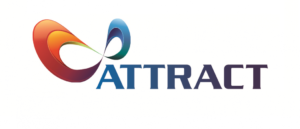European funding for 3D-printing biosensors project
3D-Printing Electricity-Producing Bacteria: A New Paradigm For Developing Graphene-Based Biosensors (PRINTBIO) will be founded by the ATTRACT call.
The overall goal of PRINTBIO is to “domesticate” and to 3D print the electricity-producing bacteria from the genus Geobacter to convert this strain in à-la-carte bioelectrochemical biosensor using graphene-based screen printed electrode as electrochemical platform. Many technologies leading to breakthrough innovations with a big impact on people’s lives stem from fundamental research.
On 20th and 21st May, the ATTRACT consortium has called all funded projects for a kick-off meeting at CERN premises in Switzerland.
A pioneering consortium
ATTRACT is a pioneering initiative bringing together Europe’s fundamental research and industrial communities to lead the next generation of detection and imaging technologies. A total of 1,211 breakthrough projects in detection and imaging technologies were submitted from over 40 countries around the world. Of these, 170 projects will be awarded €100,000 each in seed funding to bring their ideas to life.
As for the fields represented by the submissions, 58% of the 1,211 breakthrough ideas are related to sensors, 20% to data acquisition systems and computing, 17% to software and integration, and 5% to front and back-end electronics.
Funded by the European Union’s Horizon 2020 programme, the ATTRACT project aims to help revamp Europe’s economy and improve people’s lives by creating products, services, companies and jobs.
This project has received funding from the European Union’s Horizon 2020 research and innovation programme under grant agreement No 777222

